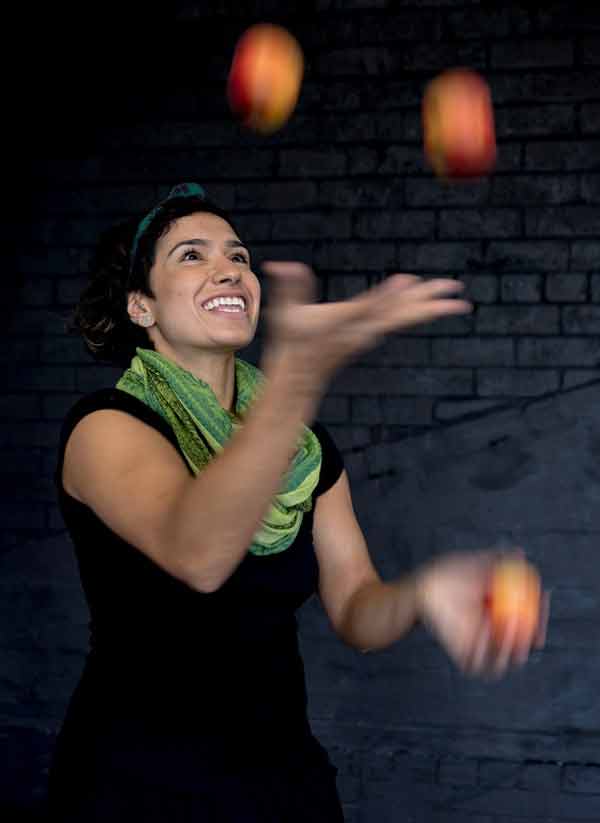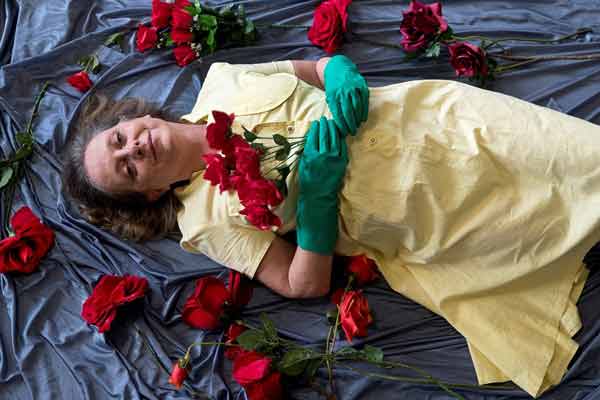“Love isn't clean. It's dirty. Like a good joke.”
Lane values order in her career, her house, her emotions and her relationships. When her surgeon husband falls in love with a terminally-ill patient, everything that Lane had in check goes into disarray. She must turn to the women in her life to help her sort out the mess.
Director Rosane McNamara answers some questions about 'The Clean House', by Sarah Ruhl, playing at New Theatre.
This show premiered back in 2004, which is 13 years ago! Do all the themes in 'The Clean House' still resonate just as much as they did then?
Some things about human nature don’t seem to change over time. In ‘The Clean House’, people lead neat and tidy lives – or so they think. Their houses, their lives, love and even death are 'clean'. So how do they cope when their lives become one big mess? Learning to accept the mess and laugh at the absurdity of life are still important strategies.
What is your favourite thing about this show?
I’m torn between the humour and the magic realism but I think I’ll go for the latter. Theatre is a place where you can push the boundaries of imagination and I love the whimsical aspects of this play: people from the past appearing on stage, snow falling in the living room, apples dropping from the sky. The wonderful world of theatre.
How did you come to direct 'The Clean House'? Did you choose it, and if so why?
It really chose me. I had spent the past two years mourning the loss of my husband so I was surprised to find myself offering to direct a play that deals in part with death. That’s when I knew I was 'seeing the light' again. I fell in love with Sarah Ruhl’s witty and poetic writing (she is also a poet) and with the whimsical and imaginative elements of the play. But, beneath the humour and fantasy is a very thoughtful play about relationships, death and love. It also explores cultural boundaries and the healing effect of a good joke – even if it’s in a language you don’t understand! Image © Bob Seary
Image © Bob Seary
In this show, a woman's maid comes to her rescue when her surgeon husband falls in love with one of his patients, who is terminally ill. It's a very specific story... Can it relate to your average audience member? How?
I think the wider story is about a woman’s world falling apart and how, by learning to accept the 'mess', she acquires compassion for others. Her husband suddenly finds his 'soulmate' and is compelled to break out of his ordered life to pursue a completely quixotic one – something many middle-aged men can relate to! And his lover, though terminally ill, knows how to make the most of life – and when it time to make a dignified exit. ‘The Clean House’ explores loneliness, desire, joy and loss – emotions we all share.
What has been the best thing about directing 'The Clean House' so far?
Being able to explore the depths of this deceptively simple play with a talented cast and design team. It is a joy to work on such a well-written play – it’s no surprise that it was a runner-up for the 2005 Pulitzer Prize for drama. It has also been a delight working with our set, lighting, sound and costume designers to realise all the aspects of the play, especially the more whimsical qualities.
On the other side of the coin, what have been the challenges?
‘The Clean House’ is a delicate work of art and the rhythm and humour are such important elements to get right. The play needs the right balance between the humour and emotion so that the comedy doesn’t undermine the emotion but shows that, just as in life, even the most serious or tragic situations can have their funny or absurd moments. Image © Bob Seary
Image © Bob Seary
Tell us a bit about the cast. What are their strengths?
I am fortunate to have a talented, experienced, hardworking and thoughtful cast. Each of the five actors is good at both comedy and drama so they are able to explore the emotional side of their characters along with their quirkier or more absurd qualities.
A major strength of this cast is that they each bring excellent suggestions to rehearsals regarding the emotional context of a scene, the development of their character and ways of staging each scene. It is a truly collaborative process.
How does this compare to shows you've directed in the past?
I’ve directed such a range, from musicals (‘Oh What a Lovely War’) to historical dramas (‘A Man for All Seasons’) to bitter comedies (‘Who’s Afraid of Virginia Woolf?’). The humour, even absurdity, of ‘The Clean House’ reminds me of ‘Entertaining Mr Sloane’, which I directed at New Theatre in 2012, but the closest match, with its whimsical, supernatural qualities, would be ‘Prelude to a Kiss,’ which I directed at Belvoir St Theatre in 1999. There’s so much wonderful theatre for a director to play with.
Why should people come and see 'The Clean House'?
‘The Clean House’ is such a wise and witty play. It will make people think about the balance (or lack of) in their own lives; about the isolation of modern life and the price we pay for our successful, 'clean' lives. Above all, it will make them laugh. Life, love and death are serious topics but we also need to be able to laugh at them – after all, laughter is the best medicine.
'The Clean House' plays New Theatre from 6 June-8 July.

